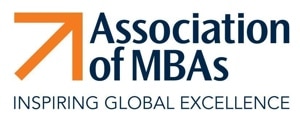
In an interview with the ITN Education News Channel, Mr Glover said business school graduates do not to face the same problems as alumni in other disciplines, who often struggle to find meaningful work and go on to question the value of the course they’ve taken.
Speaking on the eve of the Association of MBAs’ (AMBA) International Conference for Deans and Directors, he told ITN: “92 per cent of graduates from business schools we surveyed were in work at the time of graduation. That’s an all-time high. 72 per cent said that their new position met or exceeded their expectations and three quarters said that without the skills they learned at business schools they wouldn’t be in the position they’re in now.”
Future proofing the MBA to maintain these standards was the theme of AMBA’s annual conference in Warsaw (15 – 17 May). Setting the tone for discussions about the virtual classroom of the future Nokia’s Education and Technology Specialist, Bhanu Potta told conference delegates of senior business school management: “The speed of change in student learning styles far outpaces the speed of change in teaching practices.”
In AMBA’s snapshot survey conducted during the three day conference, 65% of the delegates from the world’s leading business schools said online education and the changing attitudes of a new generation of learners would have the biggest impact on management education in the next five years.
The Deans and Directors also agreed that innovation was critical to success, with over 77% of the delegates saying they thought that the MBA will have to innovate in order to remain the flagship business school degree.
Meeting in Warsaw, under the backdrop of Poland’s transformation and achievement, the conference delegates also demonstrated the changing dynamic of MBA education. The business schools attending from emerging or growth economies showed how their MBA programmes are driving the economy and that business schools from developed countries will soon need to catch up.
“The emerging economy business schools have a great advantage to become number one in the world because they don’t need all this time for unlearning because they are just learning,” said Professor Danica Purg, President, IEDC-Bled School of Management in Slovenia and President of CEEMAN.
To see the full interview with GMAC ‘ s Ben Glover , more ITN interviews from AMBA ‘ s annual conference and specialised content from industry professionals and experts within the education sector, please visit the ITN Productions ‘ Education News Channel, here: http://www.educationnews.itn.co.uk










